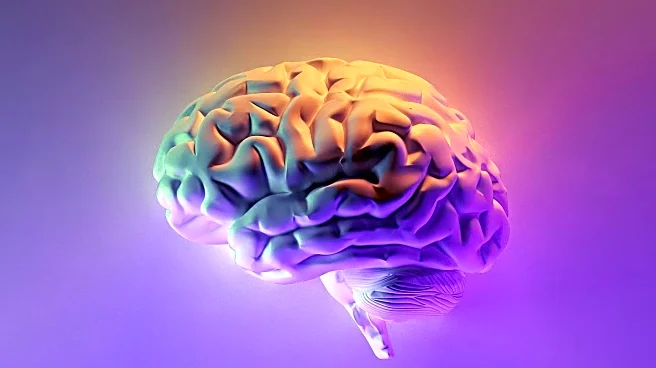What is the story about?
What's Happening?
Albert Einstein College of Medicine has been awarded an $18 million grant from the National Institutes of Health (NIH) to develop predictive tools for serious mental illnesses (SMI) such as schizophrenia, bipolar disorder, and major depressive disorder. The initiative aims to use artificial intelligence and cognitive monitoring to identify when patients require intensive intervention, thereby improving recovery times and reducing hospitalizations. The project will create algorithms to predict crises by monitoring cognitive fluctuations and psychiatric symptoms, offering mental health professionals free access to these tools.
Why It's Important?
This grant addresses a critical need in mental healthcare by providing tools to predict and prevent severe episodes in patients with serious mental illnesses. The initiative could significantly impact public health by reducing hospitalizations and improving patient outcomes. It also aims to optimize the allocation of limited mental health resources, ensuring timely intervention for those at greatest risk. The development of these predictive tools represents a step forward in personalized mental healthcare, potentially benefiting thousands of patients and easing the burden on healthcare systems.
What's Next?
The research team plans to conduct a large-scale clinical study involving 1,500 participants at McLean Hospital in Boston, followed by a three-month monitoring period for 250 participants post-discharge. The study will track cognitive changes and symptoms to develop personalized risk models. The tools will also be tested at Montefiore Health System to ensure their effectiveness across diverse populations. The project aims to validate these tools for widespread use, particularly among those facing barriers to mental healthcare.
















